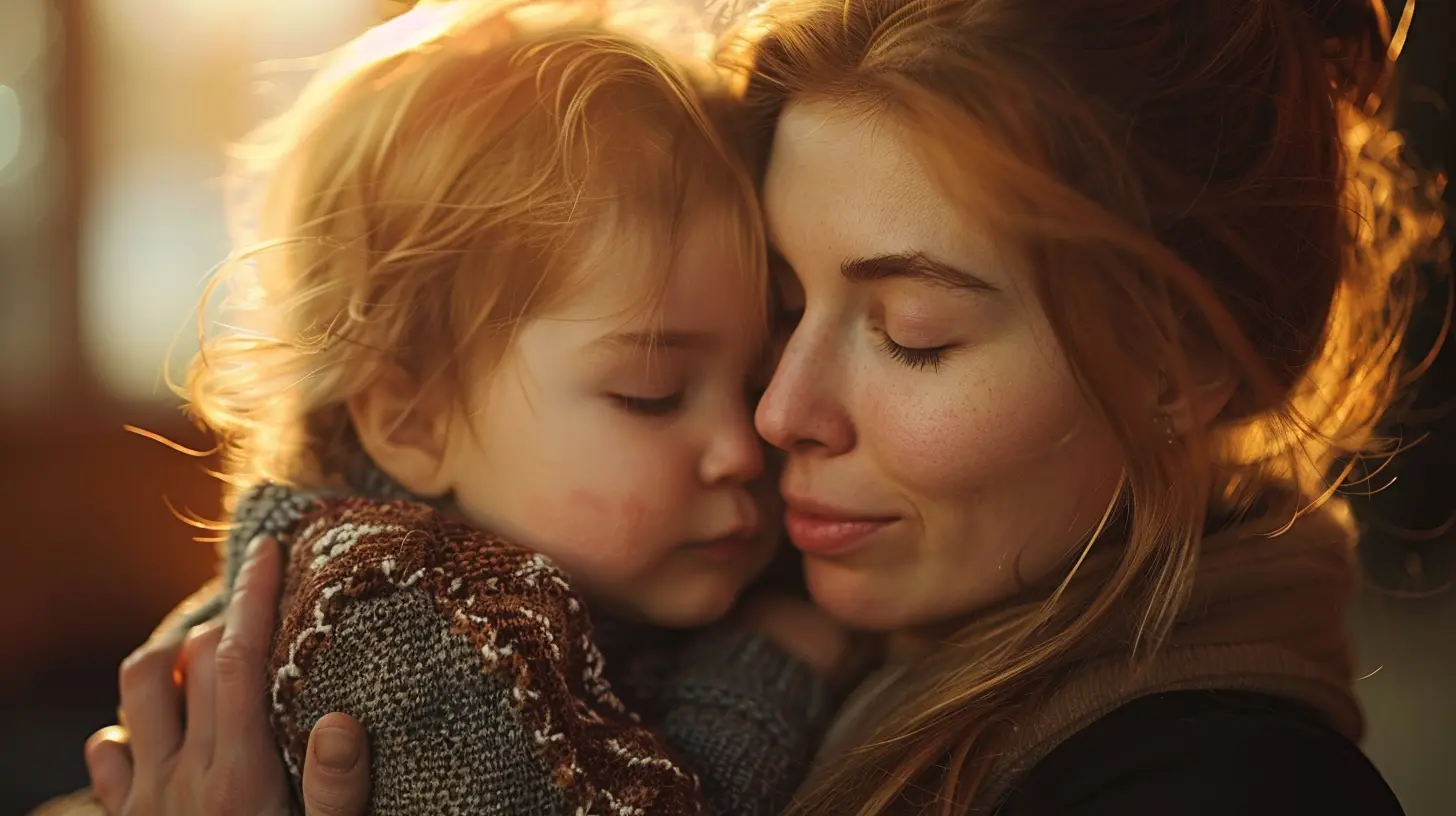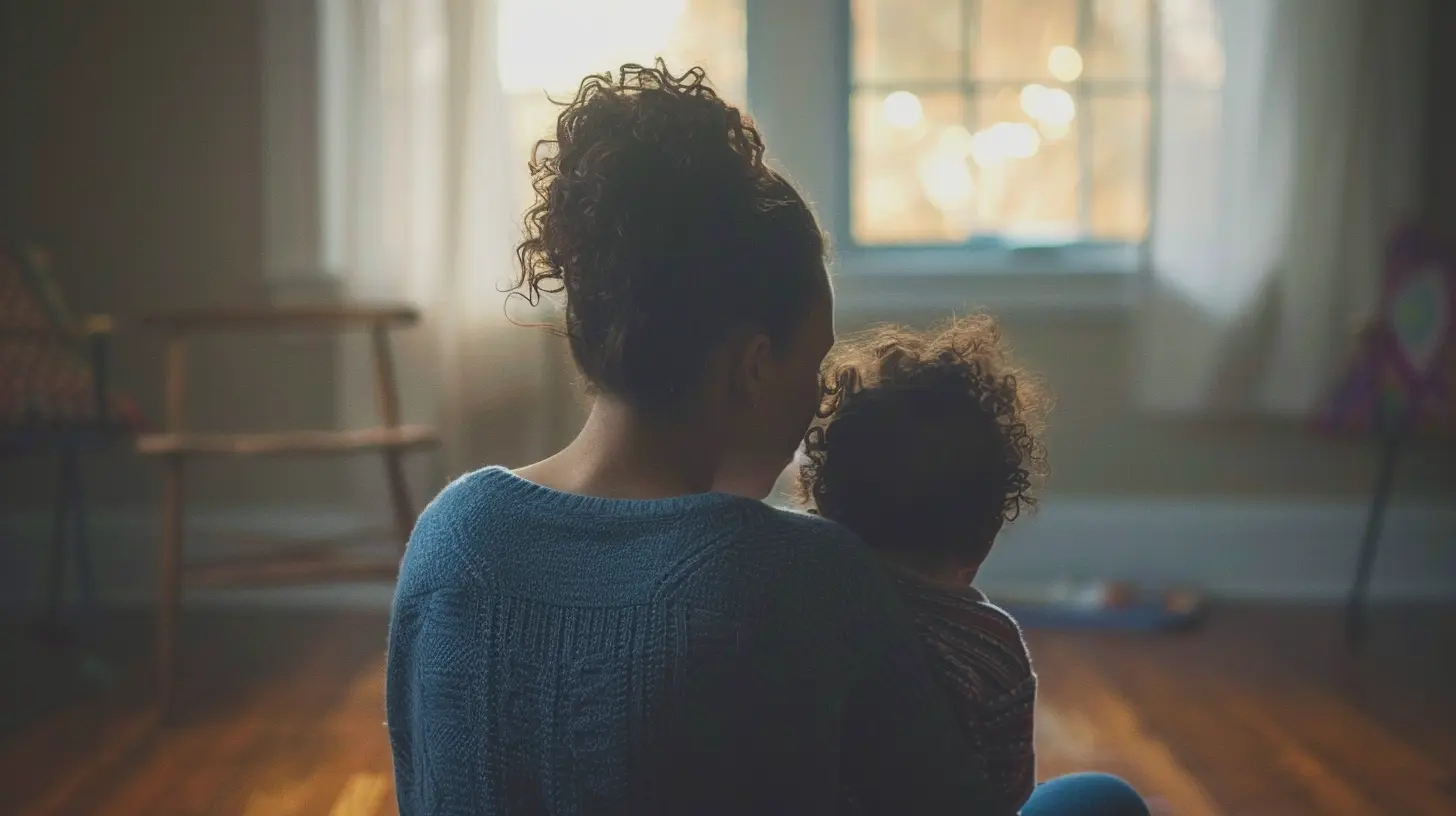Understanding Baby Blues vs. Postpartum Depression
1 May 2025
Welcoming a new baby into your life is one of the most emotional, life-changing experiences you'll ever go through. You're flooded with joy, worry, love, and exhaustion—all at once. But what happens when those overwhelming emotions don’t settle down? When you're not just tired or tearful, but feeling truly lost or hopeless?
Let’s talk about something not discussed enough, but very real: the "baby blues" and postpartum depression (PPD). They may seem similar at first, but they’re two very different emotional journeys. Understanding the difference can literally change lives.
We’re going to break it all down—what each one feels like, when it becomes a problem, and how to get help if you're struggling. Think of this as a heartfelt chat with a friend who really gets it.
What Are the Baby Blues?
Ah, the baby blues. That emotional roller coaster that hits you a few days after giving birth. You might find yourself crying over a diaper commercial or feeling overwhelmed that you can’t get your baby to stop crying. One minute you're ecstatic, the next you're wondering if you’re cut out for this.You're not alone—about 70-80% of new moms experience the baby blues.
Symptoms of Baby Blues
- Sudden mood swings- Irritability or restlessness
- Feeling anxious or overwhelmed
- Trouble sleeping (even when the baby sleeps)
- Crying spells for no clear reason
- Feeling tired, yet unable to relax
If you’re nodding along thinking, “This sounds like me,” but the emotions come and go, and you're still able to function—chances are you’re dealing with the baby blues, not something more serious.
When Do Baby Blues Start And End?
Usually within 2-4 days after birth, once your postpartum hormones start fluctuating like crazy. The good news? Baby blues usually go away on their own within two weeks. No treatment is needed—just rest (as much as possible!), support, and understanding.
What is Postpartum Depression?
Now let’s talk about something deeper and more persistent: postpartum depression.PPD isn't just an extension of the baby blues—it’s a serious mental health condition that affects around 1 in 7 new moms, and yes, even dads can experience it too.
Unlike the baby blues, postpartum depression doesn’t just fizzle out. It lingers, worsens, and can make it incredibly hard to bond with your baby or even get through the day.
Symptoms of Postpartum Depression
- Persistent sadness or numbness that won’t lift- Loss of interest in things you used to enjoy
- Feeling hopeless or worthless
- Trouble concentrating or making decisions
- Withdrawal from friends and family
- Lack of interest in the baby or trouble bonding
- Thoughts of harming yourself or your baby
If those symptoms hit close to home, it’s time to take this seriously. PPD is not a sign of weakness or failure—it’s a medical condition. And the sooner you reach out, the better it gets.
Key Differences: Baby Blues vs. Postpartum Depression
Let’s break it down clearly so there’s no confusion. Here’s a side-by-side comparison to help you understand:| Aspect | Baby Blues | Postpartum Depression |
|------------|----------------|-----------------------------|
| Onset | 2-4 days postpartum | 2 weeks to several months after birth |
| Duration | Up to 2 weeks | Several weeks to months (or longer if untreated) |
| Intensity | Mild, manageable | Moderate to severe, affects daily functioning |
| Symptoms | Mood swings, irritability, tearfulness | Deep sadness, disinterest, guilt, hopelessness |
| Treatment Needed? | Usually no | Yes—therapy, meds, or both |
Why Does This Happen?
Ah, hormones—the ultimate troublemakers. Right after birth, your hormone levels take a massive dive. Add in sleep deprivation, physical recovery, emotional stress, and a crying baby—it’s the perfect storm.But there's more to it. If you have a history of depression, anxiety, or even just a tough pregnancy or delivery, you could be more at risk for PPD. Other risk factors include:
- Lack of support (emotionally or physically)
- Financial stress
- Unplanned pregnancy
- Past trauma or abuse
- Relationship struggles
It’s rarely just one thing. Think of it like a domino effect—when one piece falls, it can trigger a cascade.
Real Talk: What It Feels Like
Let’s get raw for a minute. Baby blues can feel like standing in the rain without an umbrella—uncomfortable but bearable.PPD, on the other hand? It’s like waking up in a storm that never ends. You might feel trapped, ashamed, or even scared by your own thoughts.
A lot of moms feel guilty—like they should be happy. But emotions don’t work like that. You could have the most beautiful baby, the most helpful partner, and still feel broken inside. That doesn’t make you ungrateful. It makes you human.
When to Seek Help
Here’s the rule of thumb: if your symptoms last more than two weeks, get worse with time, or interfere with daily life—seek help. Don’t wait, don’t hesitate.Reach out to:
- Your OB-GYN or midwife
- A mental health therapist
- Your primary care doctor
- A postpartum support group (online or in person)
And don’t worry about “bothering” anyone. This is what they’re here for.
Postpartum Anxiety: A Quick Note
While we’re at it, let’s not forget postpartum anxiety—it often tags along with PPD or shows up on its own.You might feel like you can’t stop worrying about everything. Every noise, every sneeze the baby makes might send your heart racing. You could be checking the baby’s breathing 20 times a night or Googling symptoms until 3 a.m.
If your anxiety is so intense that it’s interfering with your ability to function or sleep, please talk to someone. It’s not "just being a new mom"—it matters.
Treatment Options That Actually Help
The good news? You can absolutely get better. PPD and postpartum anxiety are treatable, and there's no "one-size-fits-all" approach. What works for one mom might look different for another, and that’s totally okay.Therapy
Talking to a counselor or therapist can help you process your emotions, find coping strategies, and realize you're not alone.Cognitive behavioral therapy (CBT) is especially effective in helping shift those persistent negative thoughts.
Medication
Antidepressants aren’t the enemy—they’re a tool. Many are safe to take while breastfeeding, and they can make a huge difference in getting you back to yourself.Support Groups
There’s something incredibly healing about talking to other moms who truly get it. Whether in person or virtual, support groups offer a shared sense of strength and hope.Self-Care (That Actually Works)
We’re not talking bubble baths and scented candles (although those are nice too). Self-care here means:- Sleeping whenever humanly possible
- Eating nourishing food
- Saying “yes” to help and “no” to guilt
- Moving your body—even a 10-minute walk
- Taking time for yourself without apology
How Partners and Loved Ones Can Help
Hey partners, friends, and family—listen up. What she’s going through is real, and you can make a huge difference just by being present.Here’s how you can help:
- Encourage her to talk about how she feels
- Offer help without waiting to be asked
- Watch for warning signs
- Celebrate small wins with her
- Remind her that she’s doing an amazing job
Sometimes, just holding the baby while she showers alone is a game-changer.
Final Thoughts: You’re Not Broken, You’re Healing
Here’s the truth no one tells you: motherhood isn’t always magical—it’s messy, raw, and emotional. And that’s okay.Whether you’re dealing with temporary baby blues or facing the heavier weight of postpartum depression, please know this—you’re not broken, and you’re not alone. Reaching out isn’t a sign of weakness—it’s a step toward healing.
Give yourself grace. Don’t compare your chapter one to someone else’s chapter ten.
You deserve support. You deserve joy. And yes—you will feel like yourself again.
all images in this post were generated using AI tools
Category:
Postpartum HealthAuthor:

Holly Ellison
Discussion
rate this article
3 comments
Bryson McDermott
Great article! 🌼 It’s so important to understand the differences between baby blues and postpartum depression. Knowledge is key to supporting new moms on their journey! 💖
May 26, 2025 at 4:34 AM

Holly Ellison
Thank you! I'm glad you found the article helpful. Understanding these differences is crucial for supporting new moms. 💕
Zareth McCollum
It's crucial to differentiate between baby blues and postpartum depression, as the latter requires professional support for effective management and recovery.
May 3, 2025 at 3:18 PM

Holly Ellison
Absolutely! Recognizing the difference is essential for ensuring new mothers receive the appropriate support they need for their well-being.
Rhiannon Hensley
Recognizing the difference between baby blues and postpartum depression is crucial for new moms. You're not alone in this journey. Reach out for support, and remember, your mental health is just as important as your baby's!
May 2, 2025 at 5:05 AM

Holly Ellison
Thank you for highlighting this important distinction! Supporting new moms' mental health is essential for their wellbeing and that of their babies.



